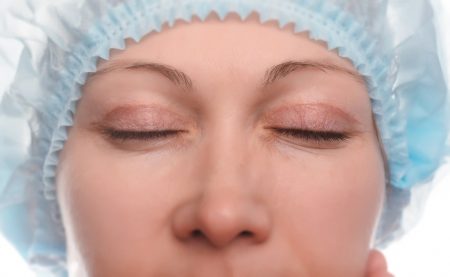 Whether you already have dental implants or are considering the procedure, good maintenance of the dental implants is the key to continued oral health. For people with one or more missing teeth, dental implants are a way to enjoy the foods they love and feel better about their appearance. The first 48 hours after surgery require special care, to be discussed with you by the periodontist. Implement these guidelines after this time to keep your gums safe and your dental implants in full working order:
Whether you already have dental implants or are considering the procedure, good maintenance of the dental implants is the key to continued oral health. For people with one or more missing teeth, dental implants are a way to enjoy the foods they love and feel better about their appearance. The first 48 hours after surgery require special care, to be discussed with you by the periodontist. Implement these guidelines after this time to keep your gums safe and your dental implants in full working order:
Regular Cleaning
Take care of your implants in the same manner as you frequently brush your natural teeth. A dental hygienist can also use the technique of scaling during the cleaning. This process extracts plaque from under the gumline of teeth.
Checkups
Routine checks are required to track the implants. Implant experts and hygienists examine gums, review x-rays and ensure that everything is functioning correctly. At Osstem, we request that our patients with dental implants come in for a qualified grooming consultation twice a year. We will inspect and disinfect the implant abutments at these appointments and will clean and polish your prosthetic teeth.
Brush
Brushing implants is just as necessary as for the natural teeth to avoid infection. Clean with a soft-bristled toothbrush twice a day. A low-abrasive tartar-control toothpaste is also recommended, as is an interdental toothbrush that helps remove plaque between the teeth.
Floss
Floss twice a day, to make sure you get between your teeth and along the abutments. Using a tape that is not waxed or floss is for use with dental implants. Often useful in extracting bacteria and tiny pieces of food from between teeth is a water flosser, also called a water jet or oral irrigator. Usually, this is the system we prescribe to our patients with full All-on-4 jaw dental implants.
Mouthwash
Spray your teeth with an antimicrobial tooth rinse or rinse that your dentist suggests.
X-rays
X-rays are part of every routine dental procedure and the dentist will decide whether or not you require x-rays at your check-up. X-rays will help ensure the implants are in order and perform properly.
Be Observant
You are the first line of defense against problems with dental implants. Pay attention to any gum tissue discomfort, or problems when biting and chewing.
Be Careful with Certain Foods and Drinks
One of the great things about dental implants is that they enable you to enjoy your life as usual. That includes eating and drinking foods and drinks that you love. Take care of them, just as the normal teeth should. Below are the foods to avoid:
Candies
If you have a big sweet tooth, you need alternatives to sticky sweets like chocolate or taffy. They can cause early wear and tear on the crowns is=f dental implants due to the way they stick to surfaces. Consuming such treats at times is good, but do so with caution to prevent removing an implant earlier than necessary – if at all.
Ice
Ice is another food one must avoid chewing and crunching. Ice is very hard, so you risk cracking or fracturing implants when you bite down. Sometimes, however, you can suck on ice and thereby prevent any unnecessary damage that would need a dentist to fix.
Unboiled Vegetables
In spite of the nutritional benefits of consuming raw vegetables, many are too crunchy in their natural state. Broccoli, carrots, celery and broccoli are delicious but may break or crack your dental implants when eaten uncooked. To protect your new smile, rather cook your choice of vegetables first.
Hot Foods and Liquids
Your dental implants have metal posts within your gum tissue. When you drink or eat foods such as hot coffee or soup, they can heat up greatly compared to the usual teeth. When consuming overheated beverages and foods, you can unintentionally damage or burn the tender tissues that surround these implanted supports. As a result, gum tissue fails, and your implanted dental work can fall out or loosen. Always ensure that something you put in your mouth is at a safe temperature because of this risk.
Popcorn
Popcorn is one of today’s most popular snacks. If you have dental implants, popcorn isn’t the best option for a snack. This is because the kernels and shells become stuck between your teeth and in your gums. For many, it’s not a concern but if you have implants, there’s a chance you might get a piece stuck and cause significant discomfort and even, probably, a painful infection.
What Happens if you do not Conduct Proper Care of Dental Implants?
lack of proper oral hygiene and treatment of the dental implant can contribute to periodontitis. This form of gum disease affects the enamel of the dent and the tooth.it’s the reason why a lot of people require dental implants first. It may also lead to problems with your dental implants.
Poor Gum Condition Signs Include:
Swelling and inflammation
Loose teeth
Bleeding
Sore gums during brushing and flossing
Poor breath odour
Infection
Finally
Whether you have dental implants or need the treatment, dental implant care is the secret to continued oral health.
Follow the advice above and you can keep smiling both inside and out.
[…]
How To Recover From A Cosmetic Gum Lift Procedure
Types of Dental Crowns and Their Advantages
Why Is Keeping Up With Your Dentistry Important?
4 Cosmetic Dental Procedures and the Case for Getting Each One
 Eyes are probably the first thing that we are noticed on another person. It’s known that people are always drawn to beautiful eyes. That’s one of the reasons why their shape and size are so important for everyone. People’s eye shapes can be different and varied. There is of course beauty in diversity.
Eyes are probably the first thing that we are noticed on another person. It’s known that people are always drawn to beautiful eyes. That’s one of the reasons why their shape and size are so important for everyone. People’s eye shapes can be different and varied. There is of course beauty in diversity.